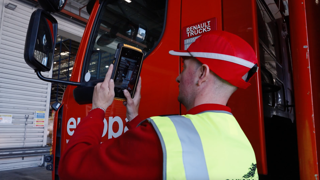
Fleet remarketing
One of the biggest costs in fleet management when it comes to operating vehicles is depreciation, with many vehicles frequently losing up to half of their new value over the first three years.
Some factors which influence the residual value of a vehicle are beyond a fleet manager’s control, such as supply and demand on the used market, but a comprehensive remarketing strategy can maximise the amount of money the car or van is worth when it is defleeted.
This could include where the vehicle is sold – both physical and online auctions are available – as well as the condition of it when it is available.
Decisions also need to be made on whether it makes sense to repair any damage before a vehicle is sold, or whether the cost of the repair will be more than the increase in the amount the vehicle is worth.
Maximise fleet vehicle values with this guide to remarketing
Achieving the maximum resale value for a vehicle when it leaves a fleet is a must for those organisations which outright purchase or finance lease them.








































